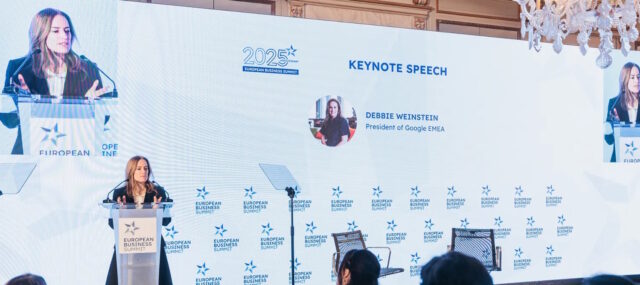Google calls on European governments to update tech regulations to embrace AI

The president of Google EMEA, Debbie Weinstein, has called on governments in Europe to do more to help promote the adoption of AI across industry. Speaking at the Europe Business Summit in Brussels, she said that she sees massive potential for artificial intelligence in Europe.
There are, however, problems. Weinstein points to issues such as companies in the regions still working with older technologies but, more pressingly, the restrictive nature of EU regulations.
In a forward-looking statement, she said that she sees “incredible opportunities for a new generation of visionary founders building the businesses to drive [the] region’s future economy”. AI is seen as a key component here, but Weinstein is not afraid of uttering criticisms of what she sees as standing in the way of progress:
AI creates the potential to boost the regional economy by 1.2 trillion Euro within a decade. But right now, Europe lags far behind other regions in realising that potential. Only 14% of European businesses currently use AI, way below China and the US.
To put it simply: European businesses deserve the best AI tools and services - But they’re not currently getting them.
In my daily conversations with those businesses of all sizes across Europe, I hear 3 themes over and over again. They want access to the latest technology, simpler rules to clear the path to growth and the right skills to make that growth a reality.
Weinstein is far from being the first person to complain about the state of regulations in Europe, and she almost certainly won’t be the last. She has quite a lot to say here:
European businesses - and citizens - need a simpler, clearer path to growth. But since 2019, we've seen over 100 EU regulations targeting the digital economy.
Mario Draghi’s report made it crystal clear that this is not sustainable. And it’s not just the number of regulations, it’s also abrupt policy shifts.
Businesses in the EU should be able to rely on a clear regime for training AI models responsibly, based on existing regulation.
We’ve seen this with the delay of Meta’s Llama multimodal models, with the restrictions of OpenAI’s Advanced Voice Mode - and with our own delays in launching AI Overviews and AI Mode which were both significantly slower to launch in Europe than the rest of the world.
Also, one-third of European developers at small tech companies have had to remove or downgrade features to comply with requirements.
European businesses, and citizens, deserve better.
To be clear, simpler rules does not mean an “anything goes” approach to regulation.
AI must be regulated - but it should be regulated well, in a way that doesn’t penalise businesses and hold back Europe’s competitiveness.
The release of the Commission’s Digital Omnibus yesterday is a step in the right direction to enable European businesses to compete globally.
But we would like to keep seeing bigger, and more significant strides to harmonize redundant digital regulations; provide enough time and clarity for more businesses to prepare for compliance; and ensure all digital regulations consider their effects on users.
Governments are criticized for “taking steps to hold back the most advanced technology”, although Weinstein fails to name names or give examples.
Google is clear that part of the future it envisions means building a particular kind of workforce, and the company sees itself as key to helping.
We’re committed to playing our part in building the skills and training approach for the AI era.
And what we know from our experience over the past decade is that only a partnership approach can make a difference at scale.
That means the right tools and training for schools and it means programs that support the most vulnerable - like the 15 million euro AI Opportunity Fund, a collaboration between Google and civil society organisations across the region.
Throughout Europe, the next generation of businesses, founders and workers are working to seize the AI moment.
They’re the next chapter of a story Google has been proud to help write for almost a quarter of a century.
Read the full speech here.
